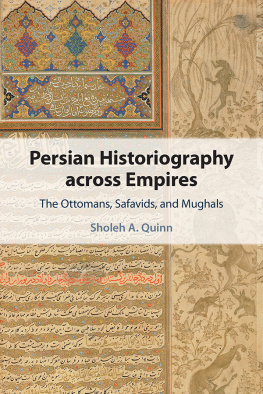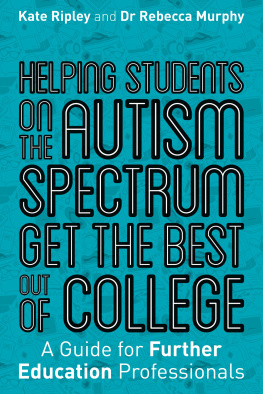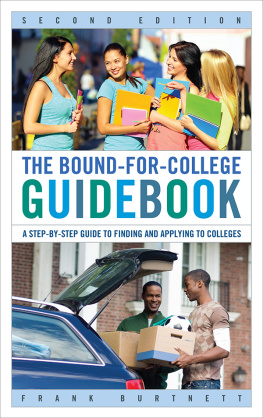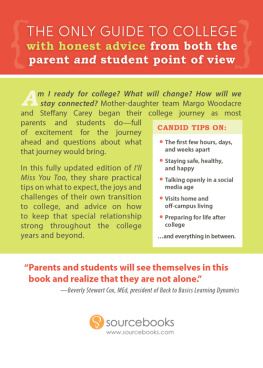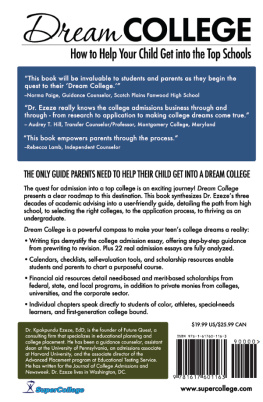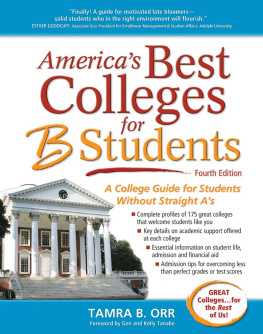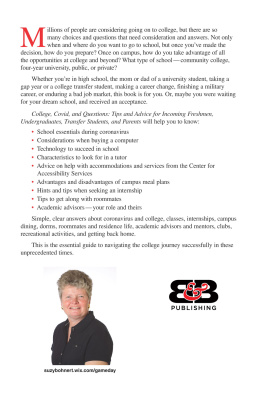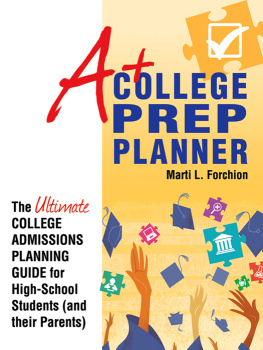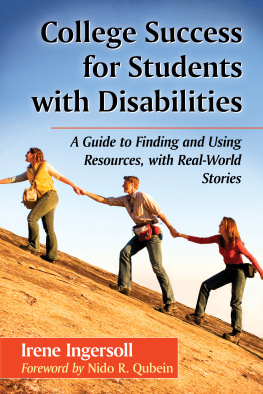Copyright 2012 by Magination Press.
All rights reserved. Except as permitted under the United States Copyright Act of 1976, no part of this publication may be reproduced or distributed in any form or by any means, or stored in a database or retrieval system, without the prior written permission of the publisher.
Electronic edition published 2012.
ISBN: 978-1-4338-1246-0 (electronic edition).
Published by
MAGINATION PRESS
An Educational Publishing Foundation Book
American Psychological Association
750 First Street, NE
Washington, DC 20002
For more information about our books, including a complete catalog, please write to us, call 1-800-374-2721, or visit our website at www.maginationpress.com.
Typeset by Circle Graphics, Columbia, MD
Printed by Worzalla, Stevens Point, Wisconsin
Library of Congress Cataloging-in-Publication Data
Quinn, Patricia O.
AD/HD and the college student : the everything guide to your most urgent questions / by Patricia O. Quinn.
p. cm.
American Psychological Association.
Summary: A resource for college students with ADD or ADHD; including advice on how to design a successful academic program and achieve life-school balance while managing AD/HD symptoms. Also included is information on academic accommodations, specialized services, AD/HD coaching, medication, relationships, and healthy living
Provided by publisher.
ISBN 978-1-4338-1131-9 (pbk. : alk. paper) 1. Attention-deficit-disordered youthEducation (Higher)United States. 2. Attention-deficit hyperactivity disorderUnited States. 3. Learning disabledEducation (Higher)United States. I. American Psychological Association. II. Title.
LC4713.4.Q85 2012
371.94dc23
2011045873
10 9 8 7 6 5 4 3 2 1
Chapter 1
First Things First
Who is Dr. Quinn?
Let me introduce myself. I am a pediatrician with special training in child development and psychopharmacology (treating mental health disorders with medications). I have spent over 35 years diagnosing and treating patients with Attention Deficit Hyperactivity Disorder (AD/HD) and Learning Differences (LD) and am uniquely familiar with how AD/HD can affect you at college. You see, I, too, have AD/HD. After graduating college with a BA in chemistry, I went on to medical school at Georgetown University in Washington, DC. It was there that I learned that I had more problems with studying and some class work than my fellow classmates, but AD/HD in adults was not even a remote possibility to be considered. After my medical internship, I completed a two-year fellowship in child development and in 1972 began conducting research in the area of AD/HD.
Over the years, I have diagnosed and treated many college students with AD/HD, and have also written books on the topic. I have four children, three of whom have AD/HD. They have all graduated from college and two have masters degrees. Since 1997, I have devoted my attention professionally to the issues confronting girls and women with AD/HD, as well as high school and college students with the disorder. I hope that my many years of personal and professional experience will allow me in this guide to answer your questions about AD/HD and provide you with the help you are looking for.
How does this book work?
This guide is written in a question-and-answer format. It is not meant to be read cover to cover. Instead, I hope that you will be encouraged to turn to a section of the book and find answers to your most urgent questions. Dealing with your AD/HD on a daily basis is never a static process. Problems change over time and in a week or so, you may need to come back and re-read a section or look up answers to other questions for problems that have arisen in another area altogether. Whether you are looking for information or dealing with an emergency situation, the table of contents will act as a directory pointing you in the right direction. However, if you are new to an AD/HD diagnosis, you may want to read more than one question or section at a time to get a complete picture.
Throughout this guide, I have used the terminology AD/HD to include all subtypes of AD/HD (Inattentive, Hyperactive, and Combined). I have used learning differences (LD) to refer to general difficulty with learning, unless a particular learning disability like dyslexia or central auditory processing is specifically stated. I have also tried to be inclusive and use the most common names for various services offered on college campuses. However, each institution is different and you may find that your campus uses a slightly different title for the same or a similar service. I have chosen to call the office that deals with students with AD/HD and LD on campus the Disabled Student Services (DSS) office.
Lastly, information contained in this guide should not be considered a substitute for medical or psychological advice and is not intended to replace professional consultation and treatments. Please seek professional help for opinions regarding your particular condition, diagnosis, or treatment.
If you want to read more about AD/HD or related conditions, additional resources such as books, videos, and applications appear in boxes throughout the text.
How can this book help me deal with my AD/HD?
AD/HD is a complex disorder and as such you will need a complex solution to ensure success. Treatment for AD/HD is often described as being multi-modalcomprised of many different componentsand encompassing all aspects of daily life. As you will learn in this guide, AD/HD affects your well-being 24 hours a day, 7 days a week, 365 days a year, and can not only affect your academic performance, but also negatively impact relationships, emotions, and day-to-day activities such as eating, sleeping, and getting enough exercise.
This guide will present ways for you to deal with your AD/HD more effectively while attempting to answer your most urgent questions. In order to do this, it will:
Provide information on AD/HD. Gaining a fuller understanding of your AD/HD and its ramifications are important factors in its successful management. While your parents may have pursued this information in the past, as a young adult you will need to take responsibility for your disorder and find out as much as you can for yourself. This guide can help. contains a detailed discussion of how AD/HD can affect you at college and what to do about it.
Increase your self-knowledge. The sections on how AD/HD affects you personally, defining your strengths and weaknesses (.
Help you set realistic goals and define ways to achieve them. These two essential tools to future satisfaction in life are discussed in .
Develop your executive functioning (time management and organization) skills. Executive functioning skills ( for more information about AD/HD coaching.)







